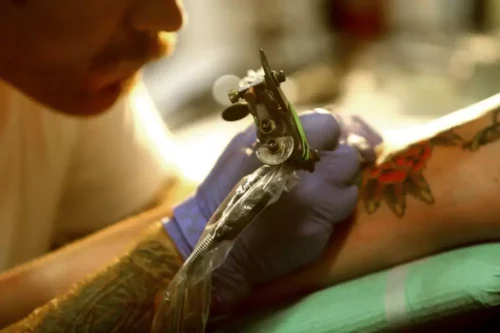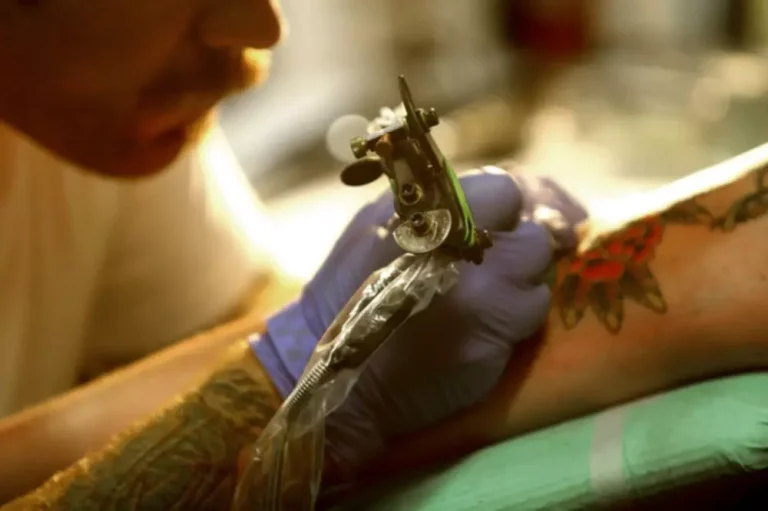
Abstaining from alcohol is the primary step, but medical treatment and lifestyle changes may also be necessary for liver recovery. Excessive and frequent alcohol consumption can result in various skin-related issues, including redness, diminished skin elasticity, and dryness. The bactericidal properties of peracetic acid and hydrogen peroxide have been demonstrated 728. Manufacturer data demonstrated this combination of peracetic acid and hydrogen peroxide inactivated all microorganisms except bacterial spores within 20 minutes. The 0.08% peracetic acid plus 1.0% hydrogen peroxide product effectively inactivated glutaraldehyde-resistant mycobacteria729.

Rosacea
Heavy drinking can lead to easy bruising and bleeding, and not just because you’re more prone to falling and hitting table corners when drunk. For some of us, half a dozen drinks during a night out aren’t yet enough to faze us. And yes, you may feel great and energized upon waking up—but that doesn’t mean you didn’t have too much to drink the night before. CO2RE by Syneron Candela® uses fractional laser energy to prompt the creation of new collagen and skin cells for improved tone and texture, as well as reduction of wrinkles, lines, and signs of sun damage. The information contained on this site is for informational purposes only, and should not be used as a substitute for the advice of a professional health care provider. Please check with the appropriate physician regarding health questions and concerns.
Susceptibility to damage
Yes, alcohol can cause facial bloating, and there are several studies to support this. A 2014 study in the journal Clinical Endocrinology found that alcohol disrupts the body’s fluid balance, leading to water retention in the skin. This effect was observed in 52% of participants after consuming a moderate amount of alcohol.

Alcohol and Health
Symptoms affecting the skin, hair, and nails are common for people with liver diseases such as cirrhosis. While there is no direct relationship between alcohol and hair loss, heavy drinking may lead to other issues that thin out your locks. Some people may also experience night sweats due to alcohol withdrawal syndrome or alcohol intolerance. Hence, drinking alcohol makes it harder for your immune system to gear up and mount a defense response against invading pathogens and viruses. As a result, you may find yourself having frequent sore throat pains, catching colds and infections more often. Research studies heroin addiction on the association between weight gain and alcohol consumption have ended in conflicting results.
Skin Appearance

As such, it’s important to understand the symptoms of alcoholic skin rashes to seek appropriate treatment and manage the condition effectively. The relationship between alcohol consumption and skin damage is intricate and influenced by factors that include the type and quantity of alcohol consumed, individual susceptibility, and overall health. Understanding this connection can help you determine how does alcohol affect your skin.
What are the treatments for alcohol-related skin problems?
Regularly drinking more than the UK Chief Medical Officers’ (CMOs) low risk drinking guidelines (no more than 14 units a week, with several drink-free days) harms your liver. One of the signs of severe alcohol-related liver disease is jaundice – a yellowing of the skin and of the whites of the eyes. Nutritional deficiencies caused by alcohol abuse can also contribute to itching and other skin problems during withdrawal. Research suggests that vitamin B12 and folate deficiencies can be linked to alcohol withdrawal itching. Ensuring proper hydration, consuming a nutrient-rich diet, and taking vitamin supplements can help address these deficiencies and improve overall skin health.
Sd Alcohol 3-B: What Is It, Cosmetic Uses, Benefits & Side Effects
From dark circles to skin rashes, there is evidence that alcohol consumption can affect skin health and appearance. The reason this revelation is happening more in older adults is because when a person is younger, their skin has higher recovery rates, and signs of alcohol can be more easily treated and covered. However, as skin ages, its ability to “bounce back” and look refreshed after a long night of drinking greatly diminishes. Understanding how alcohol affects skin allows individuals to make personal choices about the importance and amount of alcohol they choose to have in their lives.
- Many people with psoriasis report that their skin worsens after drinking.
- However, it’s essential to consult a healthcare professional before trying new treatments.
- Your doctor can help by slowly getting you used to aspirin, which should ease your symptoms.
- After all, studies have shown that almost 50% of adults wish to reduce their intake without giving up alcohol altogether.
- In this comprehensive guide, we have explored the various aspects of alcohol withdrawal itching and provided practical solutions for managing this bothersome symptom.
‘Damage like collagen breakdown and oxidative stress can still be happening under the surface. Long-term, nobody is immune to the effects of alcohol,’ says Dr Injibar. The American Cancer Society recommends limiting alcohol consumption to one drink per day for women and two drinks per day for men. Porphyria cutanea tarda (PCT) is another indicator of liver disease and is most commonly caused by alcohol use disorder. 3 Type 1 PCT occurs when porphyrins (part of red blood cells) build-up due to a deficiency in the production of the enzyme uroporphyrinogen decarboxylase (UROD), which is used to synthesis haem, a blood protein.

This happens because alcohol depletes essential vitamins and antioxidants in the body, which are responsible for skin and alcohol maintaining the skin’s elasticity and youthful appearance. In short, alcohol of any kind causes dehydration, which will leave your skin looking dry and dull. It also acts as a vasodilator, which can overdilate your blood vessels and cause your face to look flushed and puffy.
Alcohol might worsen the symptoms of eczema, causing intense itchiness and dry, inflamed skin. Patients are always elated when you can recommend an enjoyable, health-improving, recreational activity. As a runner, my favorite “prescription” while pregnant was exercise! However, more often than not, pleasurable activities are not what’s best for one’s health. But as a dermatologist who specializes in skin cancer, I am generally the bearer of bad news when I tell patients to never get another tan. Alcohol abuse causes the body to be unable to metabolize certain substances such as bile salts, corticosteroids, and histamine.
